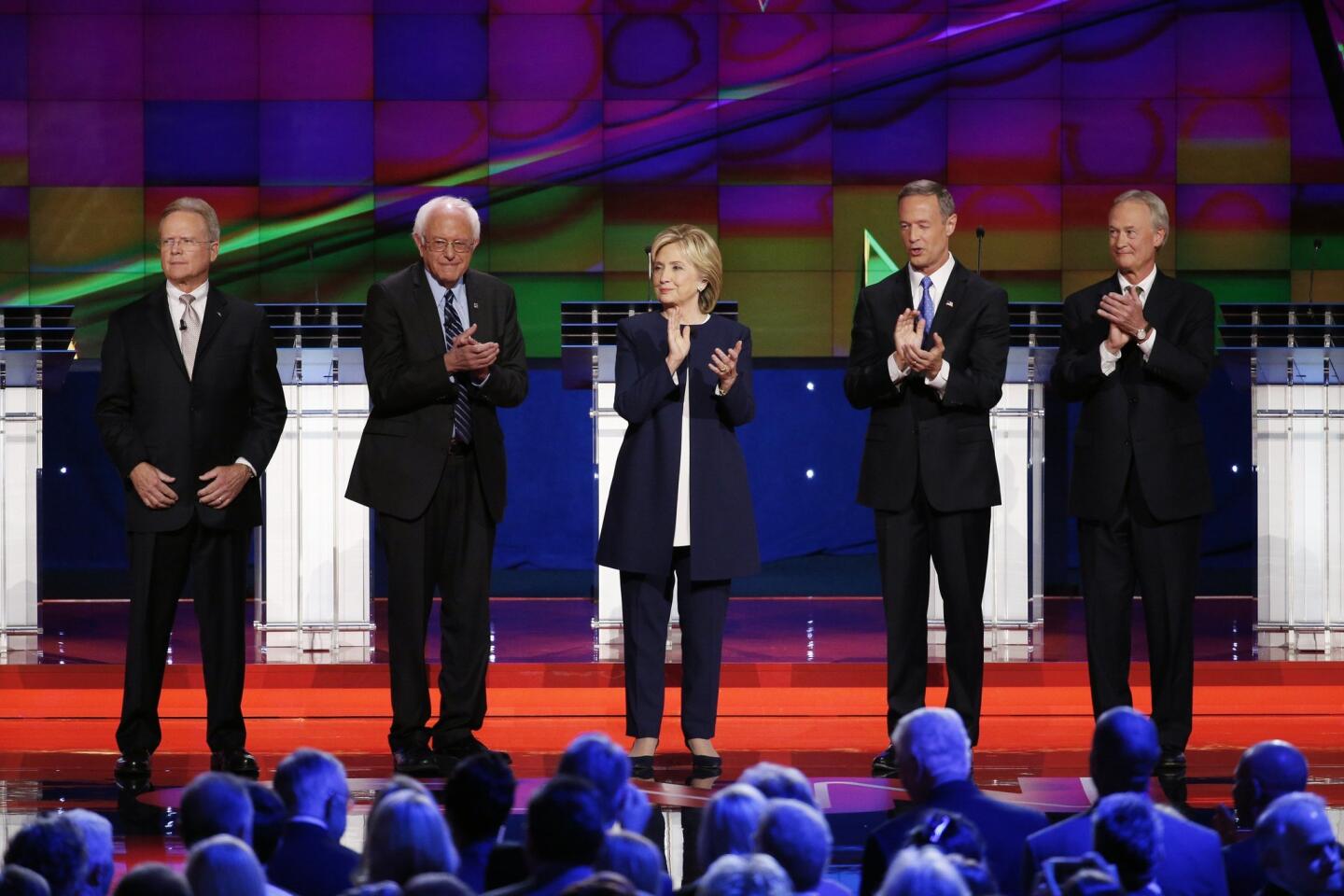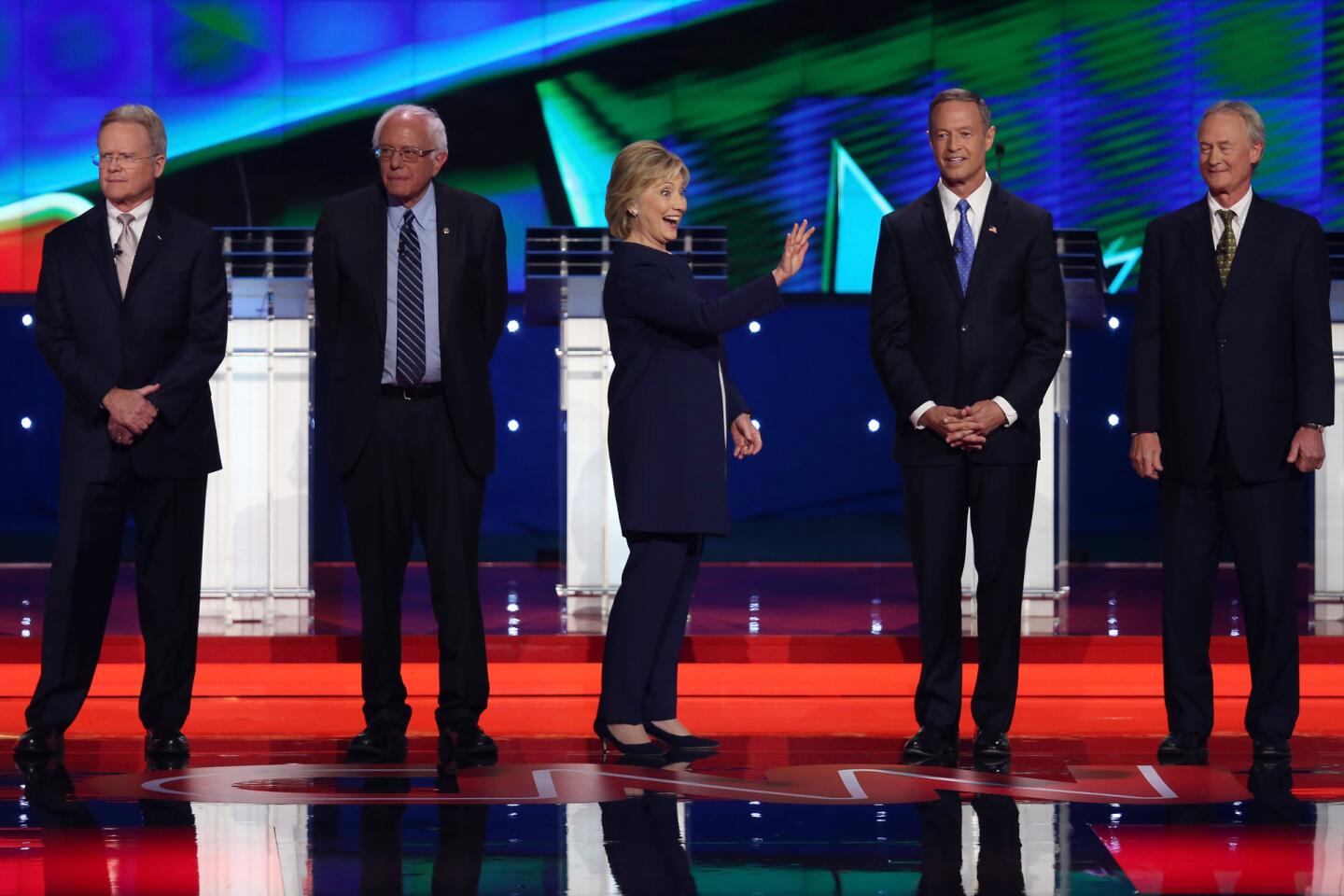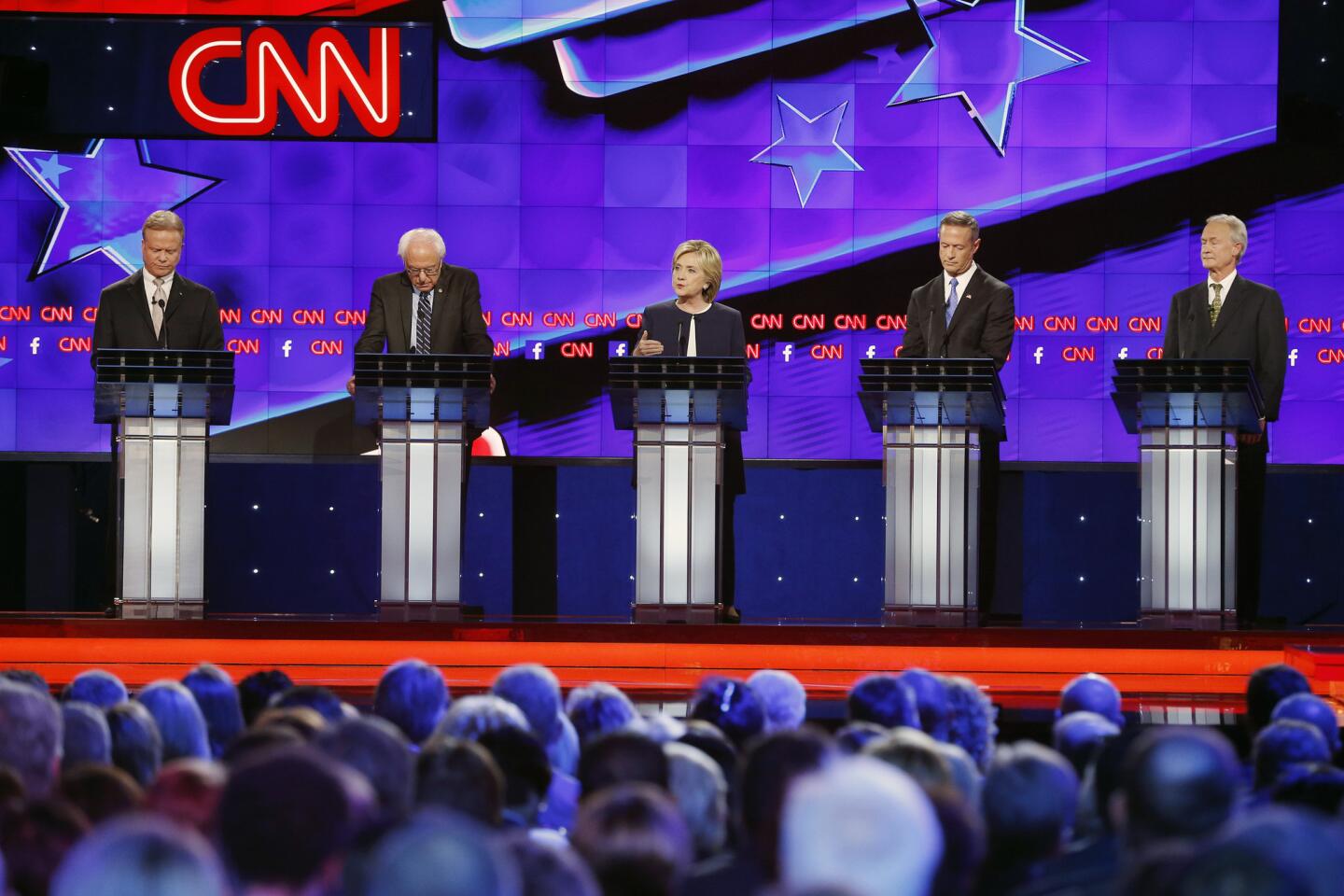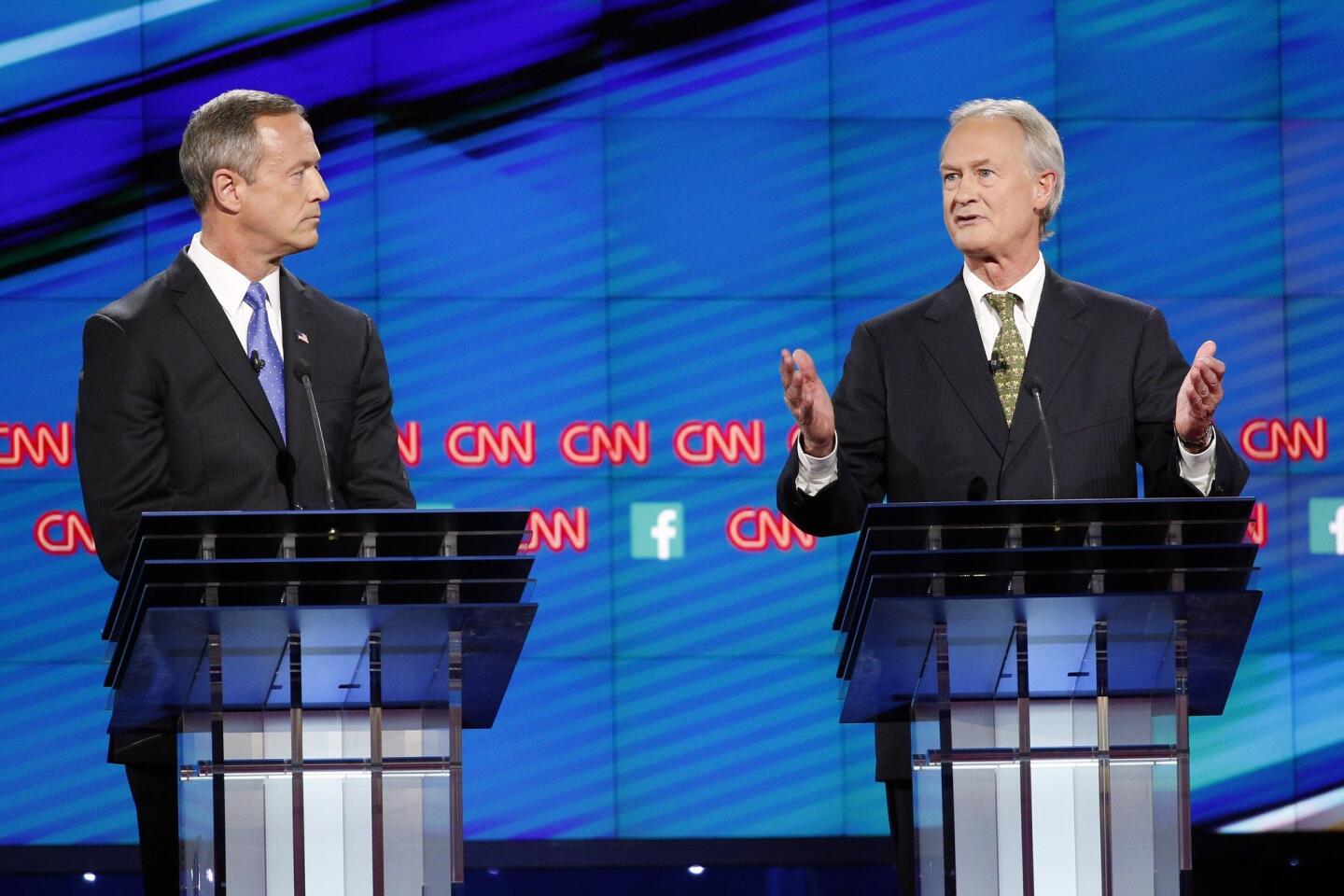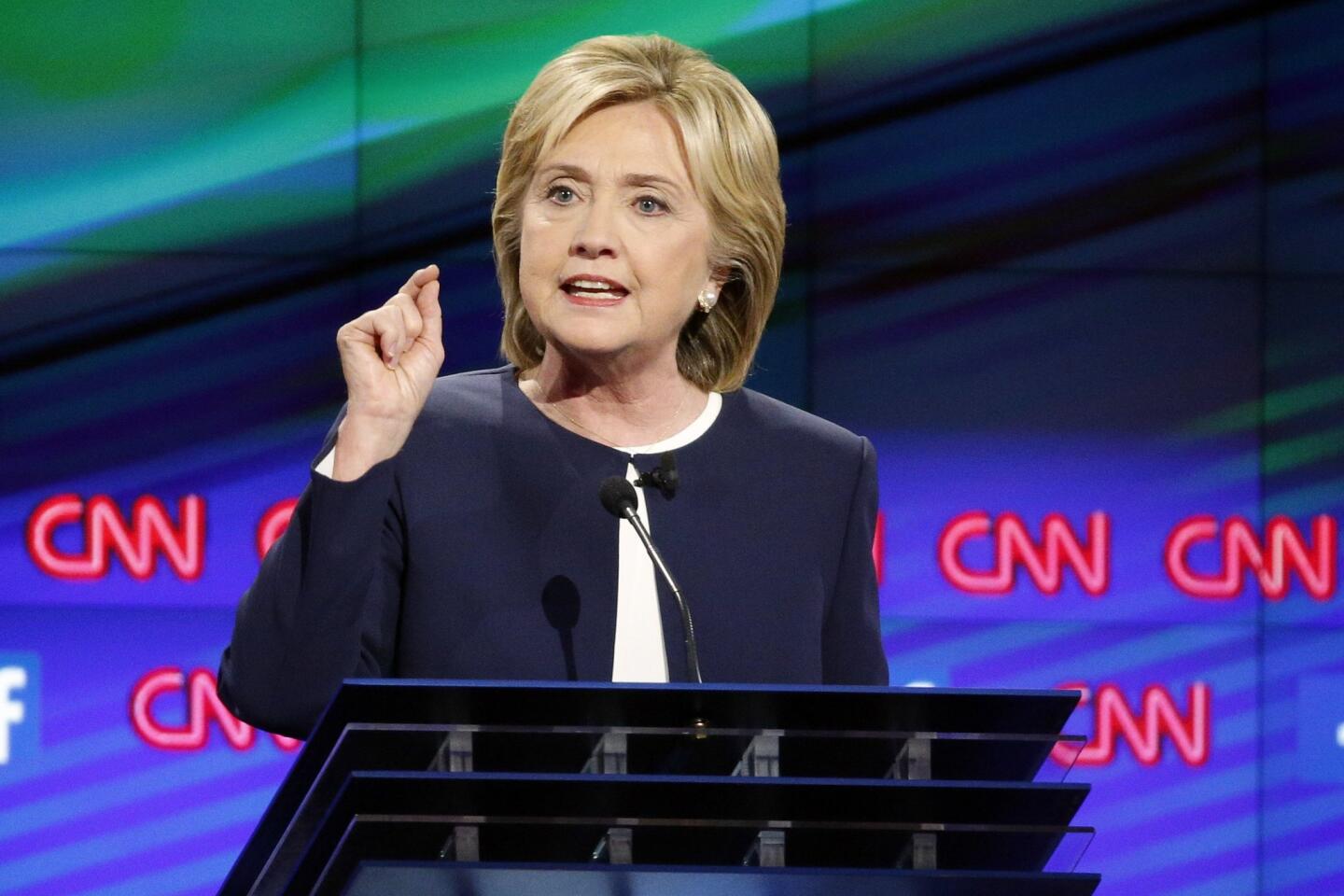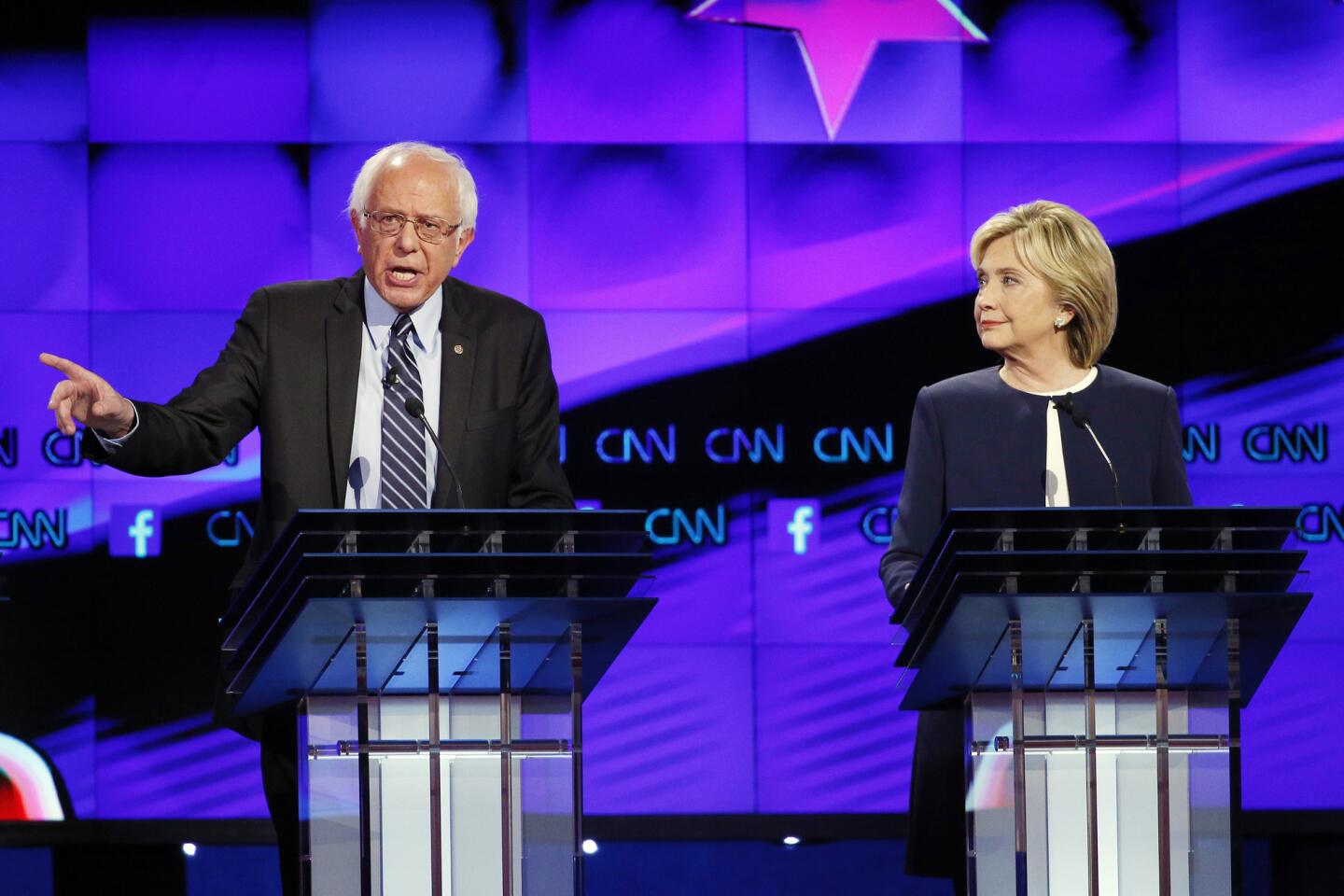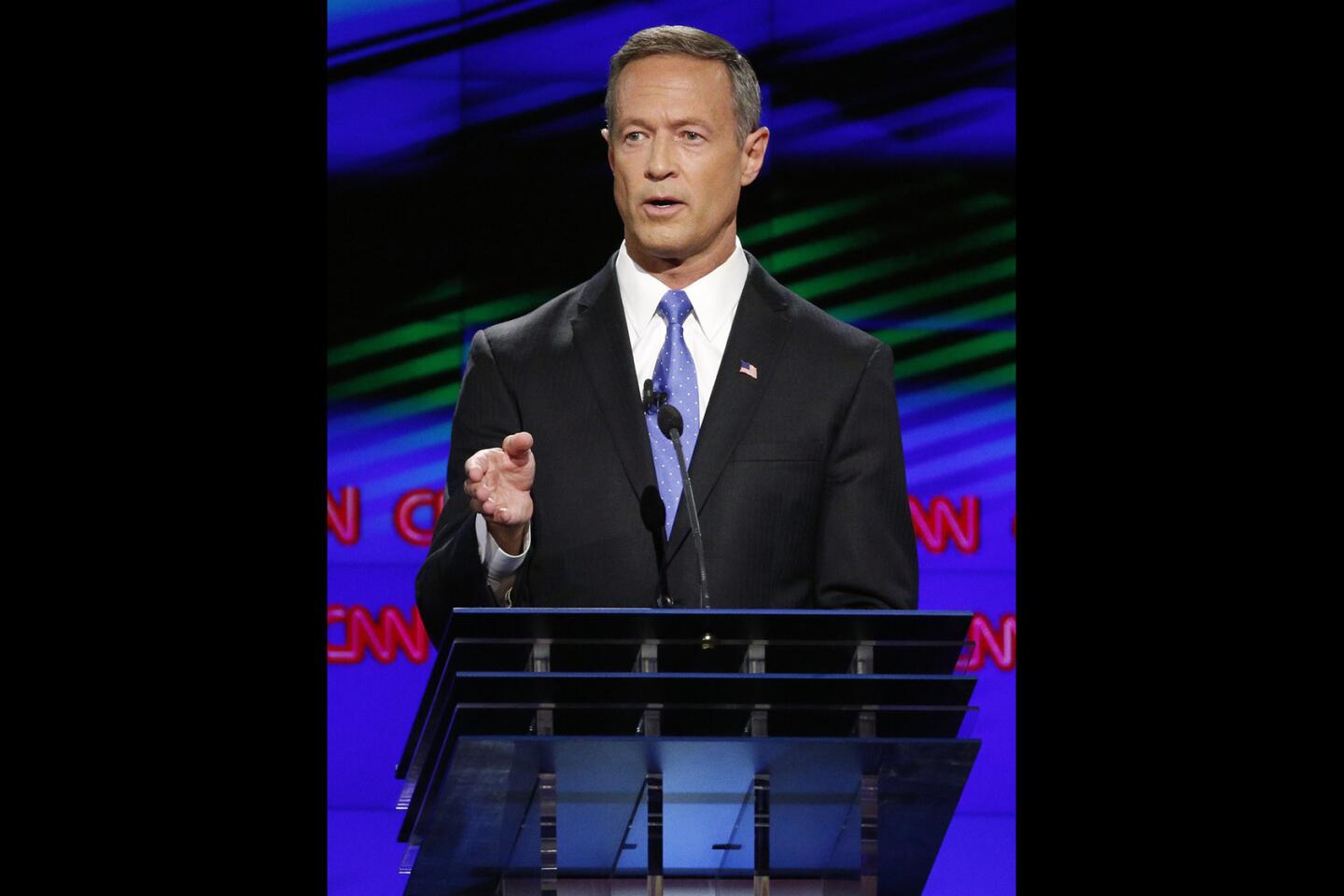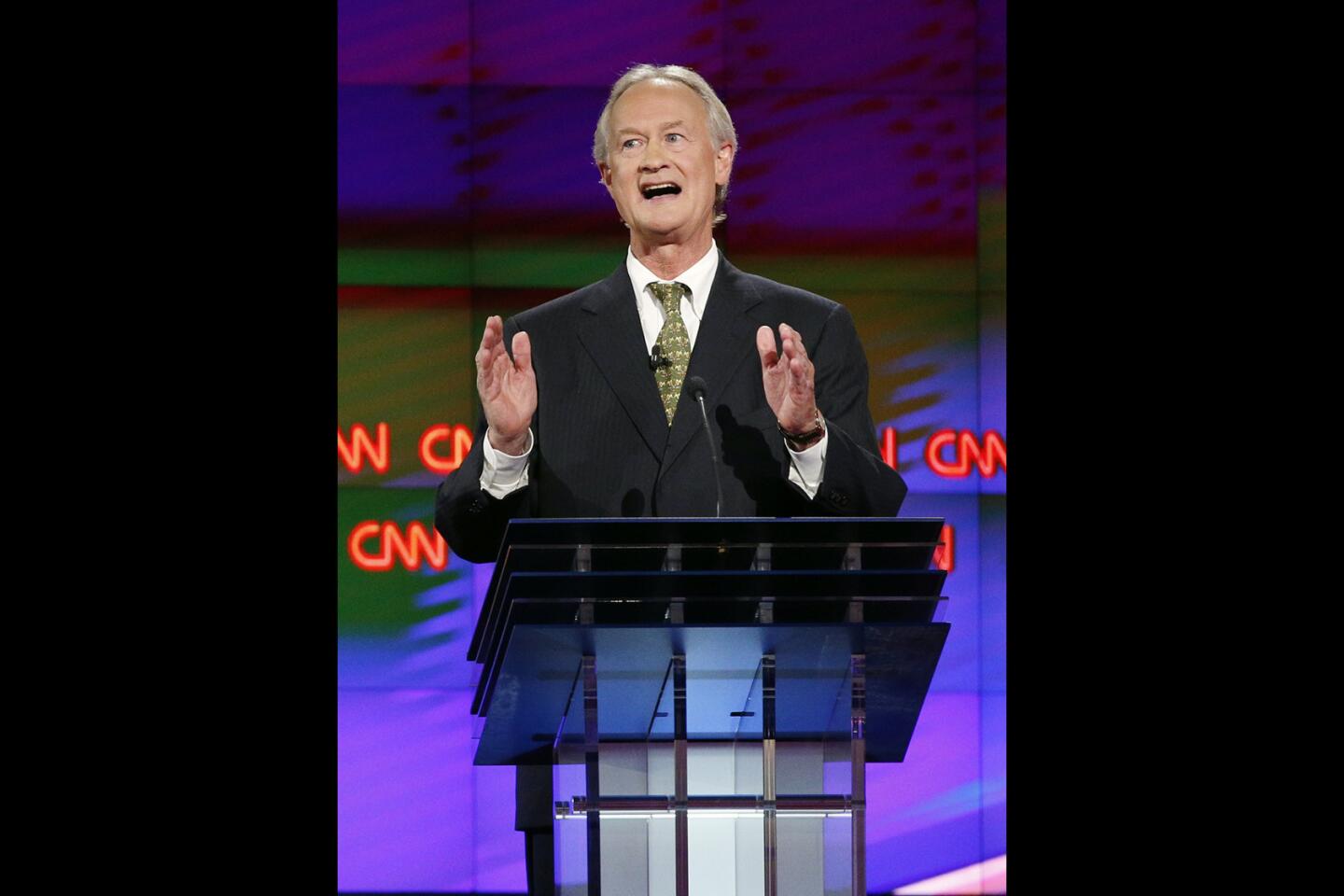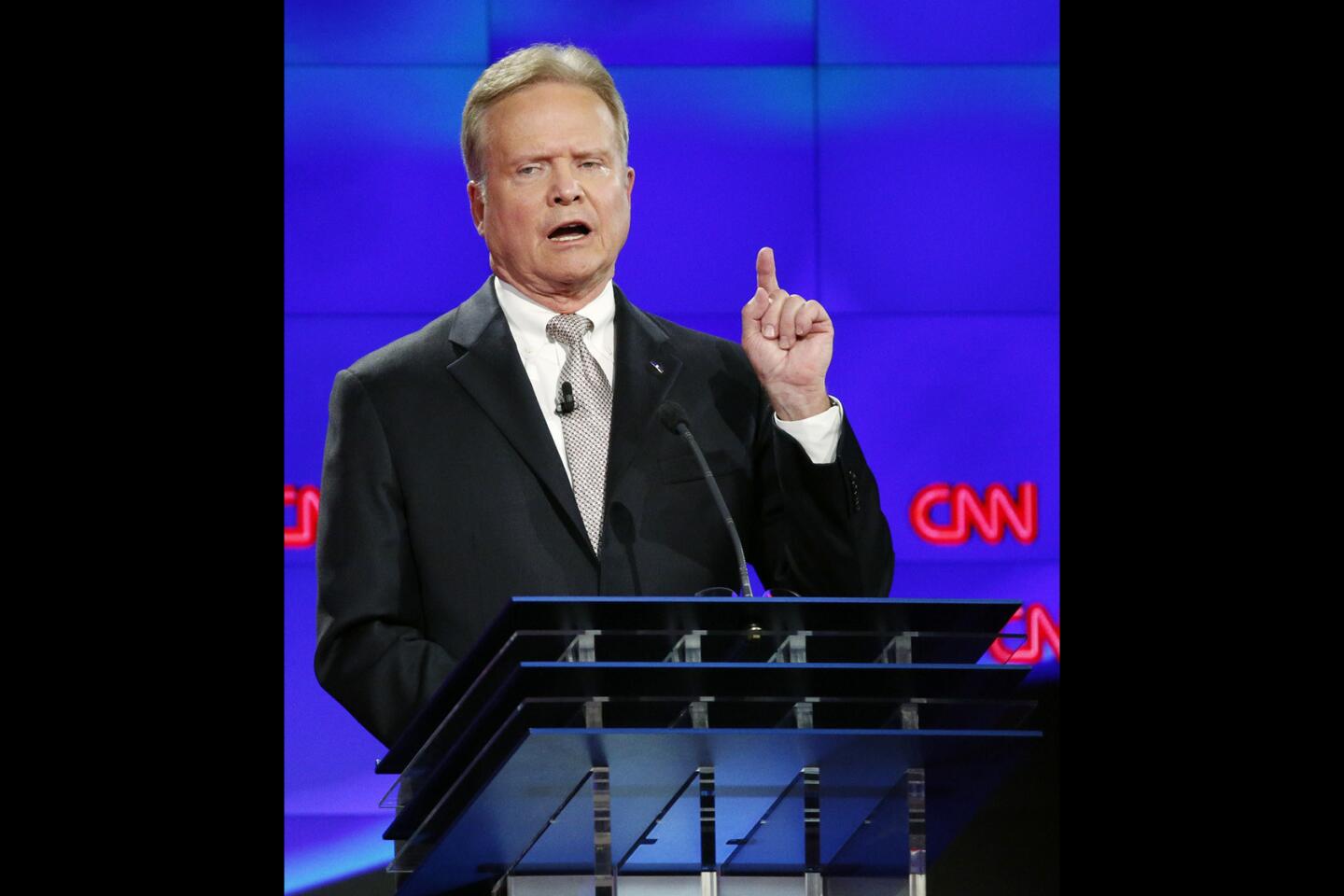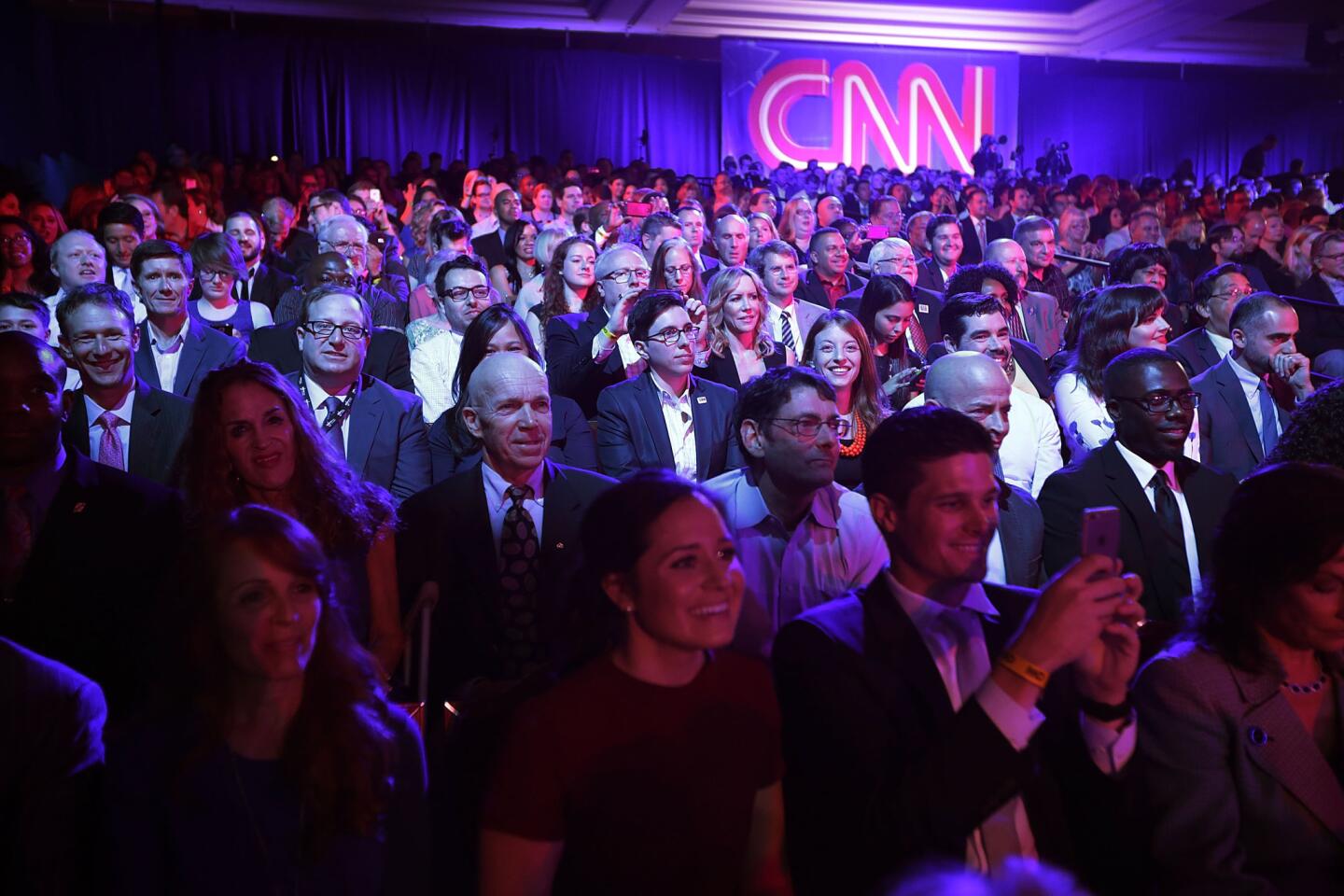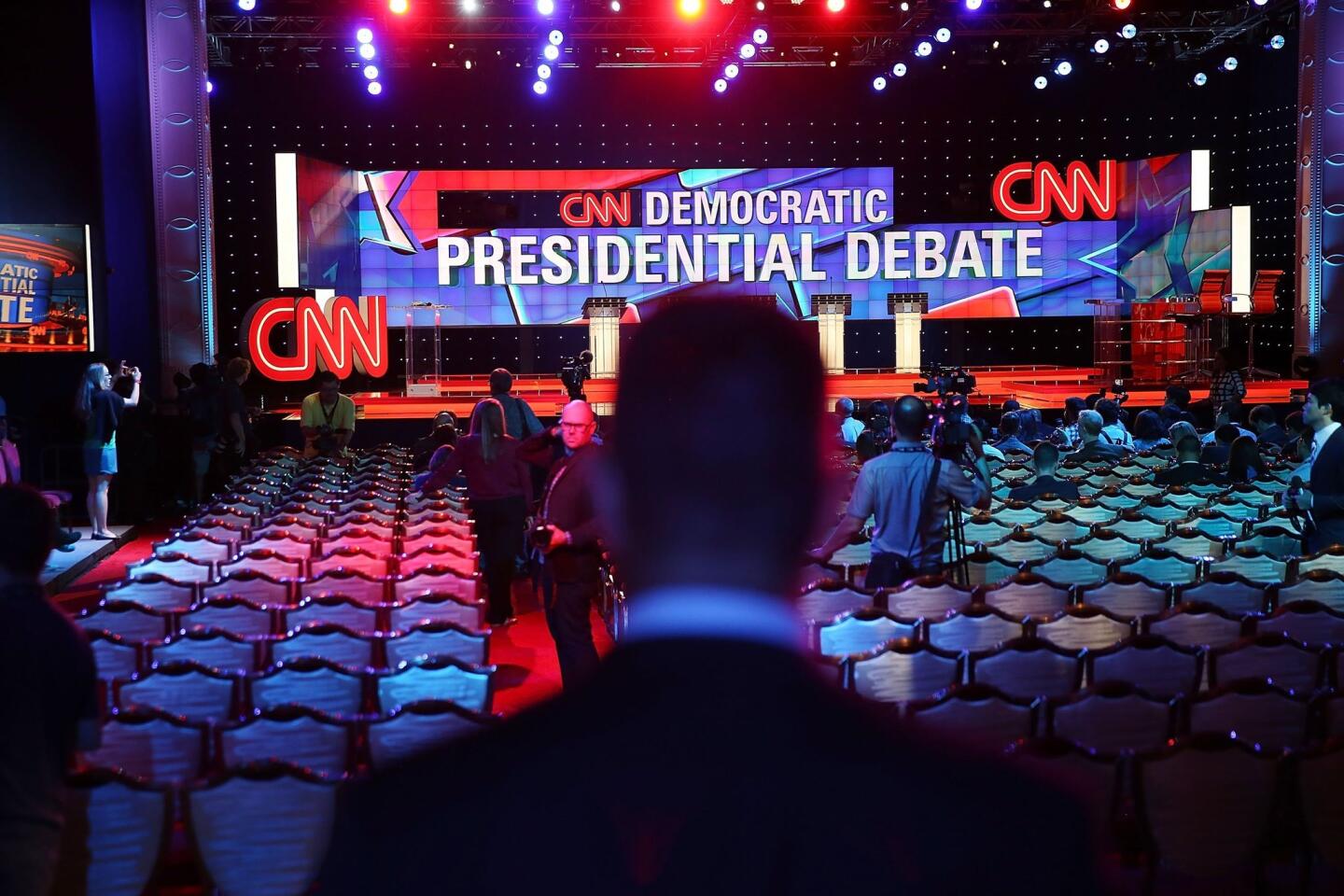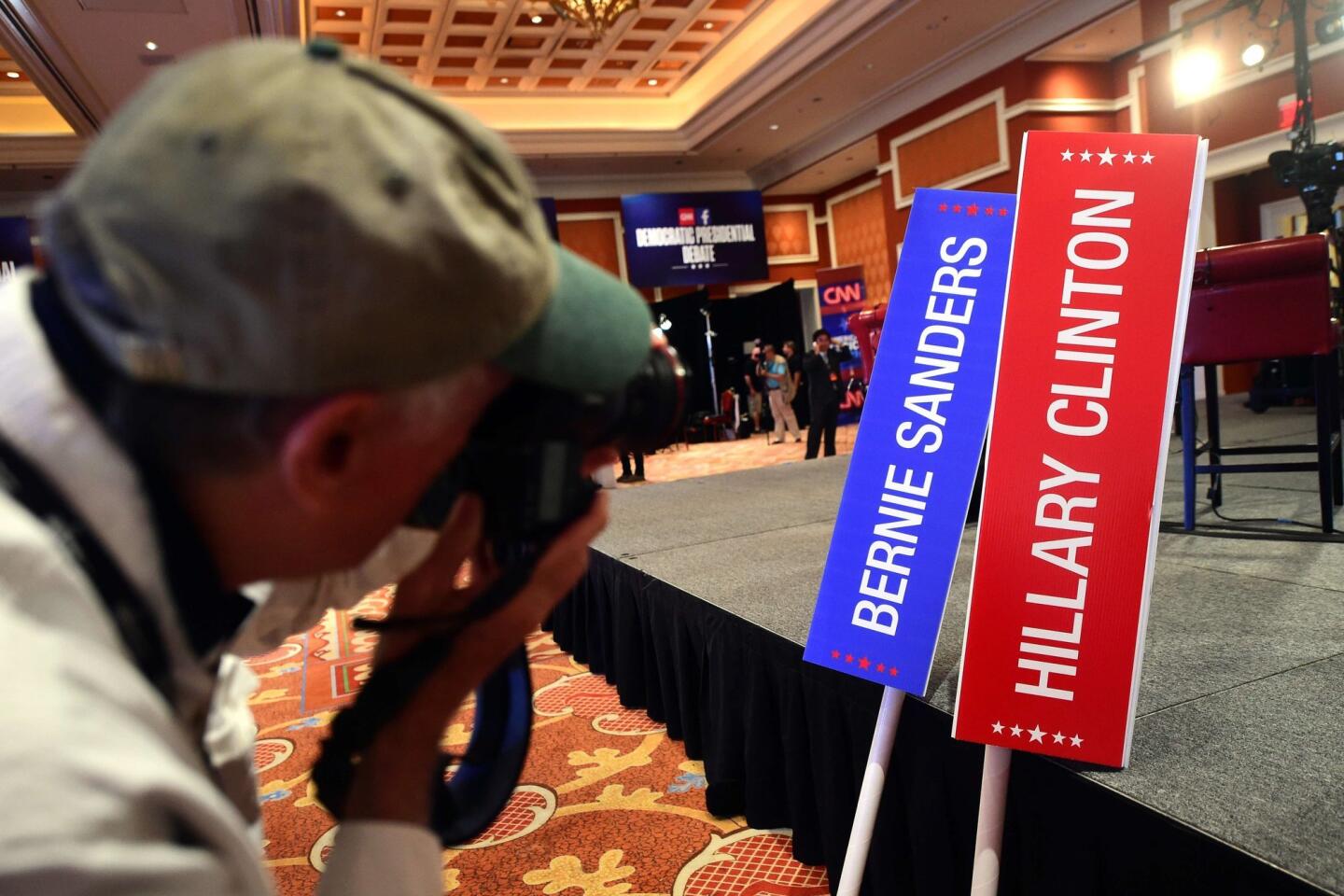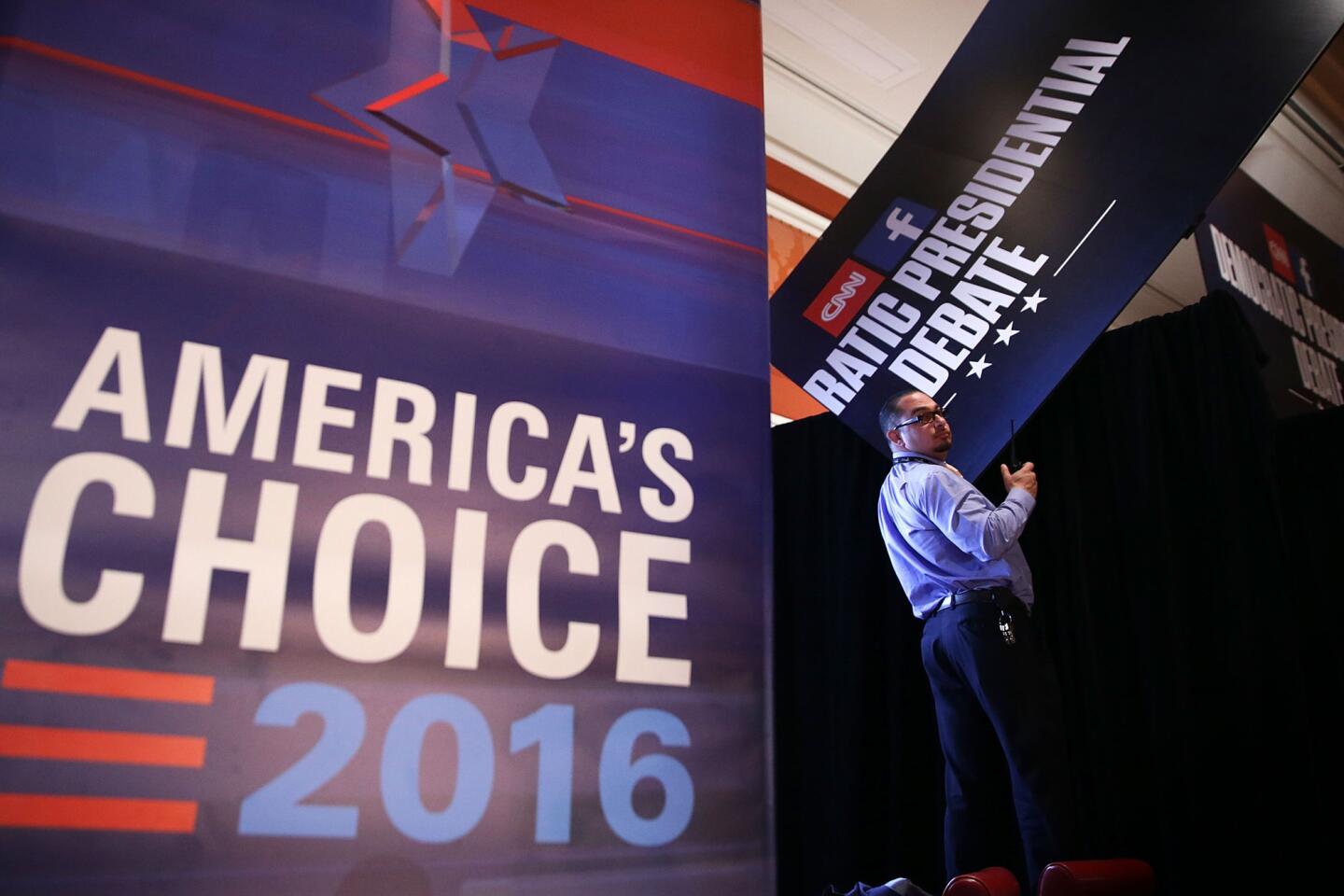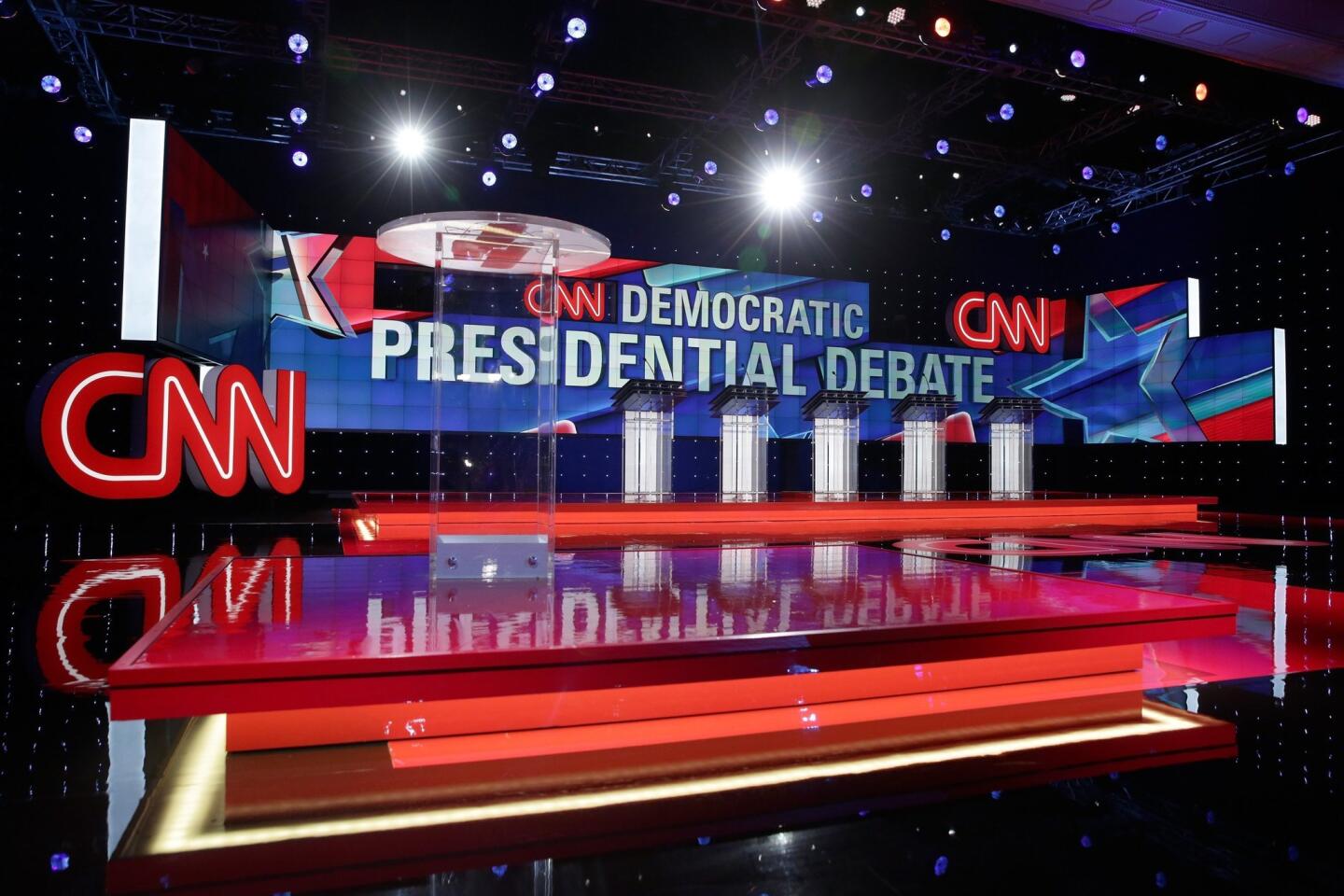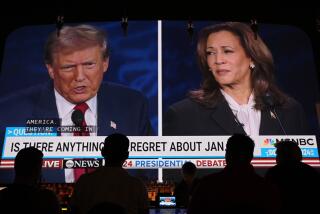Hillary Clinton reassures Democrats, but did she scare off Joe Biden?
- Share via
Reporting from Washington — Hillary Rodham Clinton had three big tasks to accomplish in Tuesday night’s debate: Reassure the Democratic establishment, draw contrasts with Sen. Bernie Sanders and deter Vice President Joe Biden.
As the post-debate reviews rolled in Wednesday morning, it was clear that she had succeeded with the first two. Whether she achieved the third goal should be known within days.
SIGN UP for the free Essential Politics newsletter >>
Clinton drew praise not only from Democrats, but even from Donald Trump, who is better known for caustic barbs than praise.
“I think she did what she had to do,” Trump said in an interview on NBC’s “Morning Joe.”

The Times’ Cathleen Decker and Mark Z. Barabak break down the highs and lows of the first Democratic presidential debate.
The debate wasn’t “very exciting,” Trump said, but “she did her job. In all fairness, like her or not, she did her job.”
Democrats were more full-throated in their praise, which rolled in from most corners of the party.
That reaction matters because Democratic officials and donors have fretted for months about Clinton’s campaign.
Headlines about her use of a private email server while running the State Department put Clinton on the defensive. Her defensiveness reminded many voters about their qualms over her truthfulness. Those voter qualms gave many Democratic activists and donors the jitters.
If she had been unable to break out of that vicious cycle, Clinton’s campaign could have faced serious jeopardy. Instead, the debate served to remind the party’s activists about what they liked about their longtime front-runner.
In news conferences and interviews, Clinton has often displayed a clenched jaw, particularly when questioned about her personal conduct. In the debate, she was all smiles.
With nods to time spent in the White House Situation Room and crisp answers about five-point plans, she exuded a sense of command that her rivals onstage often seemed to lack.
And in sharp contrast with her reticence on the subject during the 2008 campaign, she repeatedly reminded viewers that with her, they could make history: After the U.S. elected its first black president, it now had a chance to elect its first woman.
For Clinton, the key moment — and the one that seems destined to be the debate’s most replayed — came when CNN anchor Anderson Cooper pressed her on the email issue. Avoiding the defensive crouch, Clinton admitted that using a private email server as she conducted public business had been “a mistake.”
“What I did was allowed by the State Department, but it wasn’t the best choice,” she said, then quickly pivoted to an attack on Republicans that drew cheers from the crowd in the hall.
Republicans had spent $4.5 million in taxpayer funds on an investigative committee in Congress that was acting as an “arm of the Republican National Committee,” she said. “It is a partisan vehicle” designed to “drive down my poll numbers,” she added, citing a statement made recently by House Majority Leader Kevin McCarthy of Bakersfield.
“That’s what they have attempted to do,” she said. “I am still standing.”
A moment later, Sanders endorsed Clinton’s stance.
“Let me say something that may not be great politics,” he said. “I think the secretary is right.… The American people are sick and tired of hearing about your damn emails.” As the two shook hands the audience roared its approval.
It was, to be sure, a partisan crowd. An exchange like that will by no means reduce the intensity of Republican dislike for Clinton. Nor will it necessarily win over the relatively small number of voters who remain undecided about her after a generation in the public eye.
But for Clinton, winning over those voters is a problem for the future. Her more immediate challenge has been to quiet the worries among Democrats about whether she could respond to attacks without alienating voters. The cheers were partisan, but partisans are the voters Clinton largely needs to impress for the next several months.
On the second task, Sanders made drawing contrasts fairly easy. His debate performance probably reinforced an image as a political figure who is not afraid to take positions that lie outside the perceived mainstream.
In the short run, that could be good for both candidates. For many viewers, Tuesday night was probably their first sustained exposure to the independent Vermont senator. His repeated calls for political “revolution” and suggestions that the U.S. should look to Denmark for answers to social policy problems almost certainly appealed to his followers on the party’s left, and they could further fuel his campaign for now.
But over the longer run, Sanders needs to expand his support beyond the college-educated white liberals who have flocked to his rallies if he is actually to win the nomination.
With the Denmark line, Sanders gave Clinton an easy opening to portray herself as a champion of American capitalism, just one who wants to “rein in the excesses.” By maintaining his skepticism about certain gun control measures, he allowed her to depict herself as a stronger opponent of the National Rifle Assn. And by insisting that he would oppose any sort of “no-fly” zone over Syria, he allowed her to paint herself as tougher on international issues.
Except for a few remarks critical of the criminal justice system and supportive of immigration reform, the debate showed little indication that Sanders has a plan to reach beyond his core base of support to appeal either to minority voters or moderates - the two constituencies Clinton is relying on.
The debate also served as a reminder of the relative unity that Democrats have enjoyed through most of President Obama’s tenure in office. It’s a unity that is particularly striking at a time when the Republican Party struggles, both on the presidential campaign trail and in Congress, to find a way to bridge fundamental divisions.
That relative unity affects Clinton’s third task -- deterring Biden. The more Democrats agree on issues, the less rationale exists for multiple candidates to compete. A Biden candidacy has to turn, at least in part, on a perception that Clinton is a weak candidate for a general election.
Clinton and her campaign aides have been careful to avoid saying or doing anything to indicate impatience with Biden’s on-again, off-again flirtation with entering the race. But they clearly understood that a poor debate on the part of Clinton would dramatically ratchet up the pressure on Biden to go ahead.
That didn’t happen. Biden’s window for entering the race has seemed to be closing in recent days, as Clinton’s campaign appeared to stabilize after several bad weeks. Last month, in an interview with a Catholic magazine, Biden said he understood that the time to decide on a presidential bid might run out before he could make up his mind. Tuesday’s debate seemed to make that prediction more prescient.
Twitter: @davidlauter
ALSO:
Iowa Democrats: A roomful of critics for Democratic debate
Column: Democratic debate a talking-point triumph for Hillary Clinton
Polite and respectful: Democrats’ refreshing take on the presidential debate
More to Read
Get the L.A. Times Politics newsletter
Deeply reported insights into legislation, politics and policy from Sacramento, Washington and beyond. In your inbox twice per week.
You may occasionally receive promotional content from the Los Angeles Times.
